当立冬的第一缕寒风轻拂过枝头的残叶,节气便携着岁月的沉静,悄悄推开了冬日的门扉。它是四季轮回里最具仪式感的“藏冬节”,既将深秋的余温织进身上厚重的棉衣、案头滚烫的姜茶,也以“补冬”“储菜”的习俗,唤醒人们对生活的珍视与对温暖的期盼。
今天,就让我们一同走进立冬的静谧世界,探寻这份藏在寒风里的烟火深情吧!本期让我们跟随英语2506班李尚骏同学的脚步,漫步于覆着薄霜的街巷与飘着饭香的院落,感受这份独属于立冬的安稳与暖意!
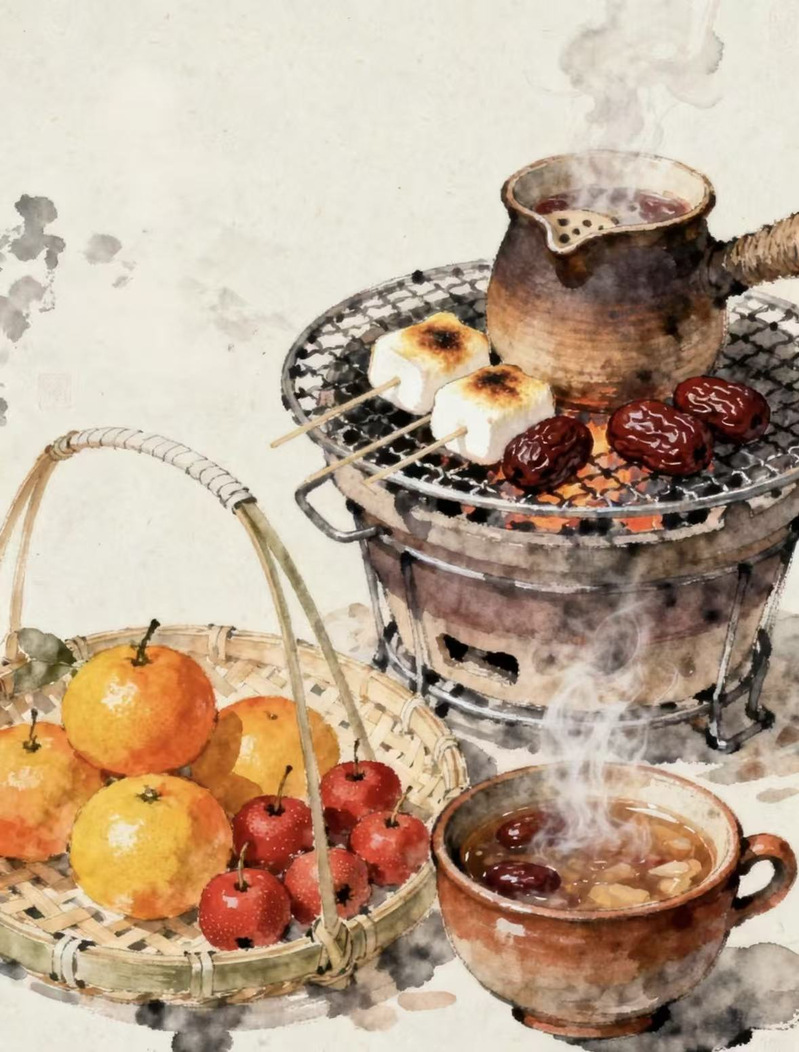
蒲公“英”说书人
大家好!我是来自英语2506的李尚骏,平常我喜欢拍照,听歌,旅游,运动。

原文
Start of Winter
The traditional Chinese solar calendar divides the year into 24 solar terms. Start of Winter(Chinese: 立冬),the 19th solar term of the year begins this year on Nov 7 and ends on Nov 21.
Start of Winter is the first solar term of winter, which means winter is coming and crops harvested in autumn should be stored up.
Here are eight things you should know about Start of Winter:
Beginning of winter or not
In ancient times, the Chinese people took the Start of Winter to be the beginning of the winter. However in fact, the Start of Winter is not the beginning of winter in terms of meteorology. The climate every year is different, so the beginning of winter could be quite different. And with the vast territory of China, winter of every area doesn't begin at the same time.
Welcoming the winter
in ancient times
The four beginnings of the seasons were important festivals in ancient times. Before the Start of Winter, the ancient emperor would take a shower and have no more meat. On that day, the emperor would lead his officials to the suburbs and perform the ceremony of” welcoming the winter.”
Eating dumplings
A legend has it that at the end of the Eastern Han Dynasty (AD25-220), Medical Saint Zhang Zhongjing saved many people in Henan province from a typhoid epidemic and their ears' from being frostbitten around Start of Winter.
He cooked mutton, hot peppers and herbs to dispel the cold and increase body heat. He wrapped these ingredients into a dough skin and made them into an ear shape. Since then, people have learned to make the food which became known as dumpling. Today there is still a saying that goes Eat dumplings on Start of Winter Day, or your ears will be frostbitten.
Yifan Festival of
Mulam Ethnic Minority
Yifan Festival is one of the most important festivals of the Mulam ethnic minority in Guangxi Zhuang autonomous region. It is held around the Start of Winter every three to five years and lasts one to three days. The festival includes inviting the god, offering sacrifices, asking the god to enjoy the sacrifice, singing praise of the god, drinking wine with the blood of chicken, and sending the god off.
Nourishing the winter
On the first day of Start of Winter, there is a custom, nourishing the winter, in Southeast China in places such as Fujian, Guangdong and Taiwan provinces. To prepare for the oncoming cold winter, people there like to eat high-calorie food such as chicken, duck, beef, mutton, and fish, which are usually stewed with the four Chinese medicines: angelica, ligusticum wallichii, Chinese herbaceous peony and rehmannia glutinosa libosch, to enhance the effectiveness of the nourishment.
Eating Chinese pumpkins
In Tianjin, on the first day of Start of Winter, people eat dumplings stuffed with Chinese pumpkins (wogua). It is a common vegetable in North China. Generally, the pumpkins are bought in the summer and stored until the Start of Winter when they are taken out.
Eating tuanzi in Wuxi
On the first day of Start of Winter, people in Wuxi have a custom of eating tuanzi, a kind of traditional Chinese food made with rice. At this time, the autumn grain crops have just been sold on the market, and the tuanzi made by the newly-harvested crops tastes delicious. Most rural residents make tuanzi by themselves, while urban residents buy ready-made tuanzi. The tuanzi stuffing can be sweet bean paste, radish or lard.
Offering sacrifices to ancestors
The Start of Winter, when the autumn crops have been placed in storage, was the time of the festival for the people of the Manchu Eight Banners and Han Eight Banners in Benxi of Liaoning province. Incense was burned and sacrifices offered to ancestors. The Eight Banners (baqi) were administrative/military divisions during the Qing Dynasty (1644-1911).
本文摘录自CHINADAILY2022-11-7
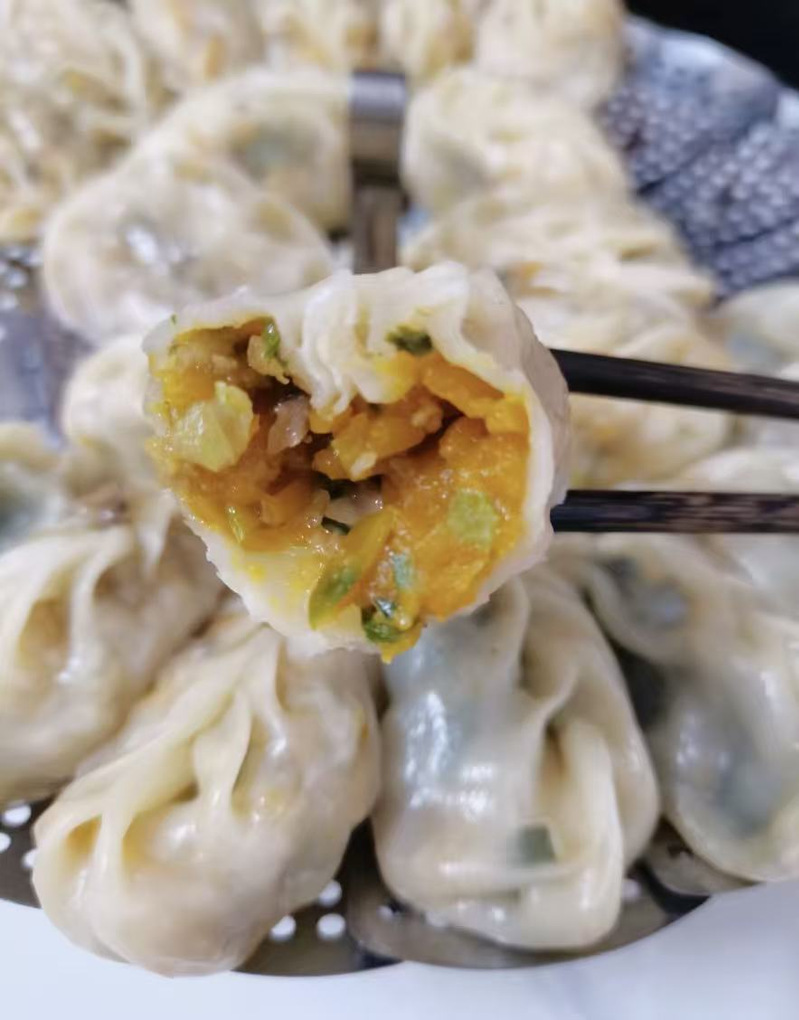
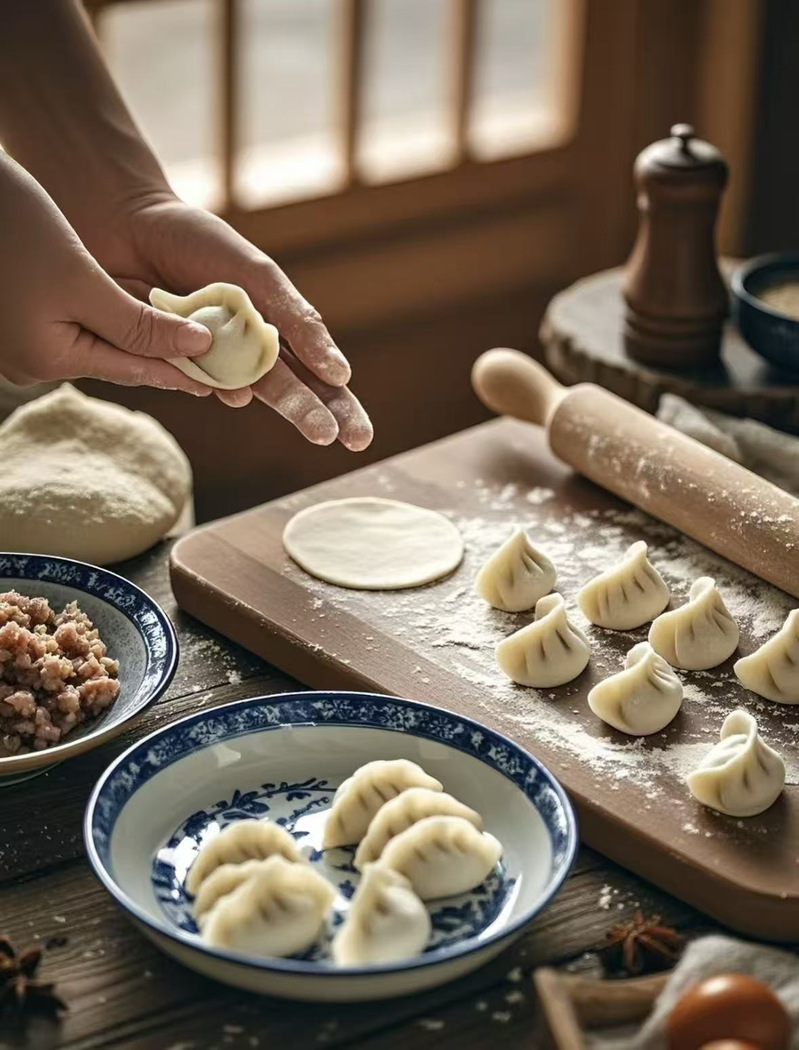
译文
立冬
中国传统农历将一年划分为24个节气。立冬,作为一年中的第19个节气,今年始于11月7日,结束于11月21日。
立冬是冬季的第一个节气,意味着冬天的到来,以及秋季收获的农作物应当储存起来。
以下是关于立冬你应该知道的八件事:
是否为冬季之始
古时,中国人民将立冬视为冬季的开始。然而事实上,从气象学角度来看,立冬并非冬季的开端。每年的气候都有所不同,因此冬季的开始也可能大相径庭。加之中国幅员辽阔,各地区的冬季也并非同时开始。
古时迎冬
古时,四季之始均为重要节日。在立冬之前,古代帝王会沐浴斋戒,不再食肉。到了那一天,皇帝会率领群臣前往郊外,举行“迎冬”之礼。
吃饺子
据传,在东汉末年(公元25年至220年),“医圣”张仲景在立冬时节,救了许多河南百姓免受伤寒疫情和耳朵冻伤之苦。
他烹煮羊肉、辣椒和草药来驱寒增热。将这些食材包裹在面皮中,制成耳朵的形状。从那以后,人们学会了制作这种食物,它被称为“饺子”。至今仍有一句俗语说:“立冬吃饺子,否则耳朵会被冻伤。
穆佬族依饭节
依饭节是广西壮族自治区穆佬族最重要的节日之一。它每三至五年在立冬时节左右举行一次,持续一至三天。节日活动包括请神、献祭、请神享用祭品、歌颂神灵、喝鸡血酒以及送神等。
“补冬”
在立冬的第一天,中国东南部的福建、广东和台湾等省份有“补冬”的习俗。为了迎接即将到来的寒冷冬季,当地人喜欢吃高热量食物,如鸡、鸭、牛肉、羊肉和鱼,这些食物通常会与当归、川芎、白芍和熟地黄这四味中药一起炖煮,以增强滋补效果。
吃南瓜
在天津,立冬的第一天,人们会吃南瓜馅的饺子。南瓜是华北地区的一种常见蔬菜。通常,人们会在夏天购买南瓜并储存起来,等到立冬时再取出来食用。
无锡吃团子
在立冬的第一天,无锡人有吃团子的习俗,团子是一种用大米制成的中国传统食品。此时,秋季的粮食作物刚好上市,用新收获的粮食做成的团子味道十分美味。大多数农村居民会自己制作团子,而城市居民则会购买现成的团子。团子的馅料可以是甜豆沙、萝卜或猪油。
祭祖
立冬时节,辽宁本溪的满八旗和汉八旗的人们会举行节日庆典,此时秋季作物已入仓。他们会焚香祭祖。八旗(baqi)是清朝(1644-1911年)时期的军政组织。
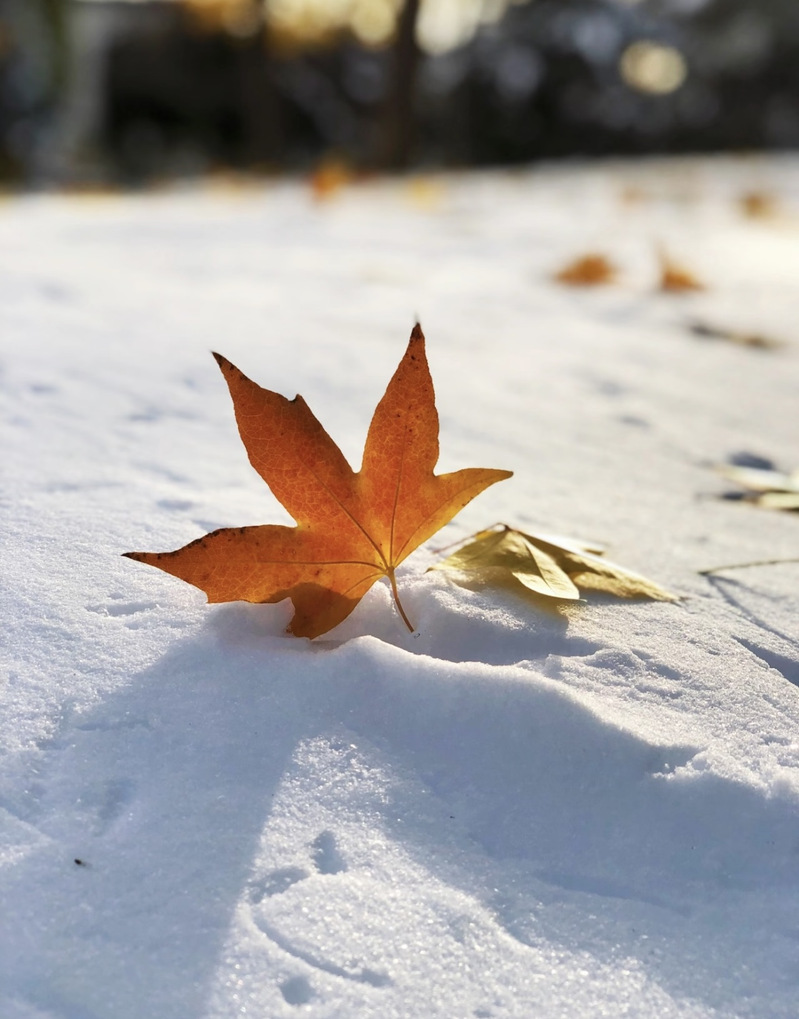
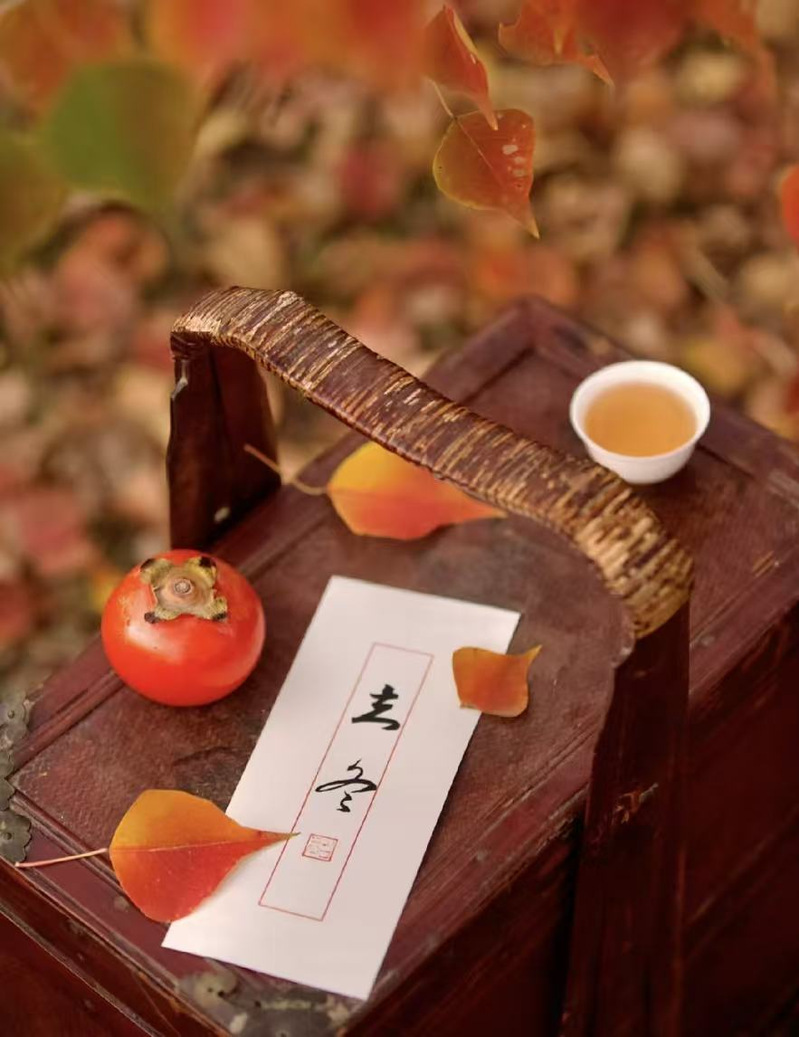
四六级关键词,接住啦
Meteorology 气象学
Territory 领土
Ceremony 仪式
Legend 传说
Epidemic 流行病
Sacrifice 祭祀
Nourish 滋养
Calorie 卡路里
Administrative 行政的
四六级暴击,小试牛刀
Question1 : What did ancient emperors do to welcome the Start of Winter?
A. Ate dumplings with officials.
B. Held a ceremony in the suburbs.
C. Offered sacrifices to ancestors.
D. Stored autumn harvest.
Answer: B
解析: 答案对应原文第4段。“On that day, the emperor would lead his officials to the suburbs and perform the ceremony of 'welcoming the winter.”原文明确古代帝王会带领官员前往郊外举行“迎冬”仪式,与选项B相符。A是民间吃饺子的习俗,C是八旗子弟的祭祖行为,D是立冬的含义而非帝王的迎冬举措,故排除A、C、D。
Question 2: Why do people in Southeast China have the custom of nourishing the winter?
A. Celebrate autumn harvest.
B. Follow Zhang Zhongjing’s advice.
C. Prepare for cold winter.
D. Honor Manchu Eight Banners.
Answer: C
解析:答案对应原文第7段。“To prepare for the oncoming cold winter, people there like to eat high-calorie food...”原文直接说明“补冬”是为给即将到来的寒冬做准备,对应选项C。A未被提及,B中张仲景与饺子起源相关,D是八旗祭祖传统,均与“补冬”无关,故排除A、B、D。
Question 3: Which statement about Start of Winter is TRUE?
A. It’s winter’s start in both ancient and meteorological terms.
B. Yifan Festival is held yearly.
C. Wuxi people make tuanzi with new grain.
D. Tianjin people eat pumpkin dumplings to honor ancestors.
Answer: C
解析:答案对应原文第8段。“At this time, the autumn grain crops have just been sold on the market, and the tuanzi made by the newly-harvested crops tastes delicious.”原文提到无锡人用新收获的粮食做团子,与选项C一致。A错(第3段指出立冬在气象学上并非冬季开端),B错(第6段说明仪范节每3-5年举办一次),D错(第7段未提及天津人吃南瓜饺子是为祭祖),故排除A、B、D。




